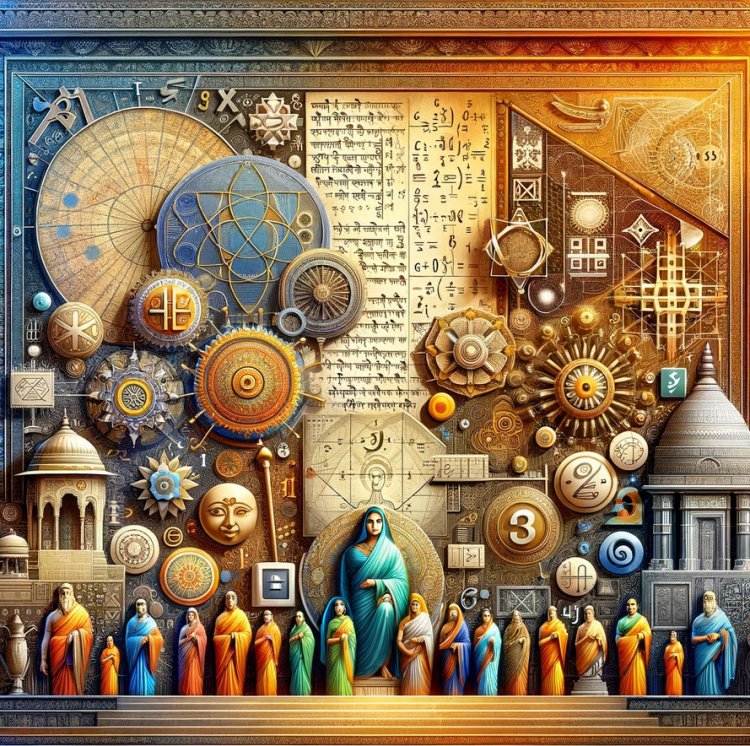Here are some key innovations and contributions from India that have had a profound impact on mathematics:
1. The Decimal System
Indian mathematicians were among the first to develop a system of decimal notation, which is the basis of the numeral system used around the world today. This system made calculations easier and more efficient, facilitating the development of commerce, science, and technology.
2. Algebra
Indian mathematicians made significant contributions to the field of algebra. The works of mathematicians like Brahmagupta in the 7th century laid the foundations for algebraic equations. Brahmagupta's Brahmasphutasiddhanta is one of the earliest known texts to have treated zero as a number in its own right, enabling the solution of quadratic equations and the development of algebra.
3. Trigonometry
The Indian mathematician Aryabhata, in the 5th century, made pioneering contributions to the field of trigonometry. He introduced the concepts of sine (jya), cosine (kojya), and inverse sine (otkram jya), which were crucial developments in trigonometric calculations.
4. Calculus
Though calculus is often attributed to Isaac Newton and Gottfried Wilhelm Leibniz in the 17th century, there is evidence to suggest that Indian mathematicians, in particular those from the Kerala School of Astronomy and Mathematics, had developed concepts of calculus much earlier. They used it to solve problems related to astronomy and trigonometry.
5. The Concept of Infinity
Indian mathematicians were also among the first to use the concept of infinity in a mathematical context. The Jaina mathematical texts, for example, contain sophisticated discussions of the infinite, the infinitely small, and the infinitely large, showing a deep understanding of mathematical infinity.
6. Mathematical Astronomy
Indian astronomers and mathematicians, such as Aryabhata and later Bhaskara II, used their mathematical innovations to make remarkably accurate astronomical predictions. These included calculations of solar and lunar eclipses, the periods of the planets, and the Earth's rotation.
7. Fibonacci Numbers and Pascal's Triangle
Though not directly invented by Indian mathematicians, the concepts that would later be known as Fibonacci numbers and Pascal's Triangle were already present in ancient Indian mathematics. Works like Pingala's Chhandahshastra (the science of meters) contain early discussions of combinatorial mathematics that resemble these concepts.
India's mathematical legacy is vast and profound, influencing various fields of study across the globe. The country's ancient mathematicians pushed the boundaries of knowledge, laying the groundwork for many of the mathematical concepts that form the basis of modern science and technology. Their innovative thinking and pioneering work continue to inspire mathematicians and scientists around the world.

















